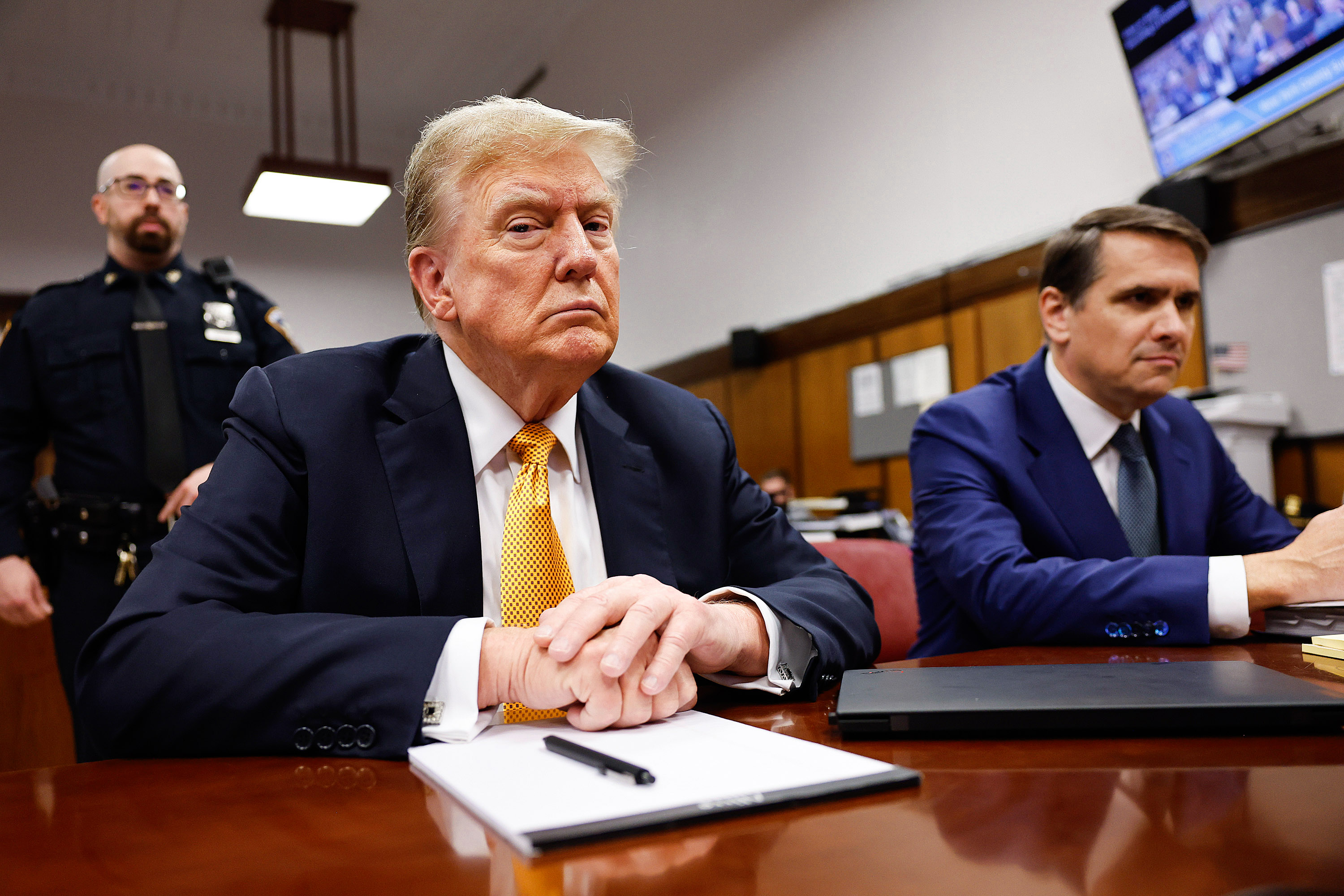Updated
Attorneys Argue Over Instructions Jury Will Receive Before Issuing Trump Verdict
Save

Former President Donald Trump sits in the courtroom at Manhattan Criminal Court with attorney Todd Blanche on May 21, 2024 in New York City. Michael M. Santiago/Getty Images
Here is the latest
•
Trump Claims Judge 'Hates' Him
•
Defense Argues for Spoliation Instruction
•
Prosecutors Argue Trump Can't Argue Intent Without Testimony
•
Judge Maintains Earlier Decision Regarding AMI
•
Defense Requests Instruction on Legality of NDA